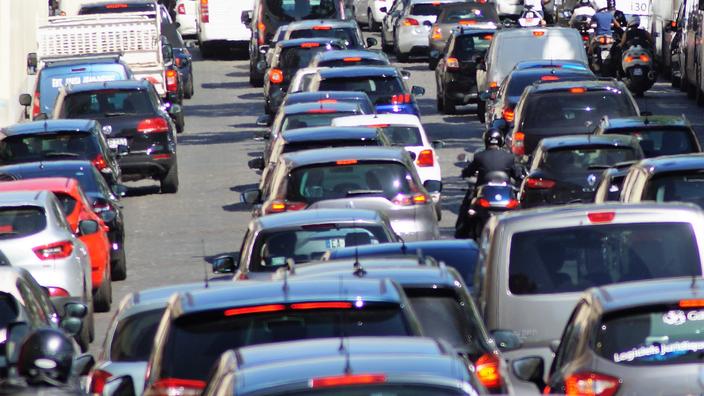At the start of the health crisis, we were promised a world that was more virtuous and sober, especially in terms of transport.
Alas, the pandemic which is experiencing yet another rebound is far from over.
But, already, we are witnessing more of a step backwards than a leap forward.
First, the French are less mobile. According to a study by Odoxa for BMW revealed last week, 60% of Ile-de-France residents have reduced their trips. A slowdown observed more widely throughout France. "
Employees who have a company car return the vehicle to us today with 105,000 km on the clock after the 39-month contract, against 110,000 before the crisis,
" says Laurent Petit, head of marketing at Alphabet, specialist in corporate fleets.
Above all, the sacrosanct car, yet singled out for its negative impact on the planet, is making a comeback.
The phenomenon is particularly visible for home-work journeys: before the crisis, car use was gradually declining, from 81% of these journeys in 2017 to 72% in 2019. With the pandemic, the car rose to 76%. % This year.
"
The French have returned to their vehicle because they feel more protected there than in other modes of transport
", underlines Laurent Petit.
The lines are moving with telework
In fact, according to a UTP (Public Transport Union) study released last week, public transport is perceived as the place where the risk of contracting Covid is the highest. It does not matter that no cluster has been documented in these transit locations. "
This proves that we still have a lot of work to do to reassure passengers that taking the train, bus or tram is safe,
" recognizes Sylvie Charles, Managing Director of Transilien, the Parisian suburban train branch. of the SNCF.
Public transport has a second weak point: with the rise of teleworking, subscriptions to take the bus, tram or metro have become less financially advantageous. This explains why everywhere in France, public transport has not recovered to the pre-crisis level of use: in the Paris region, we are at 80-85%; in the provinces rather at 90%. According to the UTP, only 60% of French people take them regularly, against 73% in 2019.
In addition, new habits have emerged with teleworking: for example, attendance on Fridays is now 24% lower than on Tuesday, whereas before the crisis the difference was limited to 10%. On the other hand, the aspirations to leave the big city, fantasized by many, will not change the situation. By cross-checking real estate loan simulations, Transilien estimates in its study that only 10,000 inhabitants will leave Ile-de-France.
This overuse of the car is very significant in the Capital Region: according to a study commissioned in particular by Transilien and the Paris Region Institute, car traffic increased by 10% at the beginning of October compared to March 2020. And, for the moment, the discomfort generated by increasingly heavy traffic jams (+ 33% compared to March 2020) does not encourage drivers to abandon the car.









